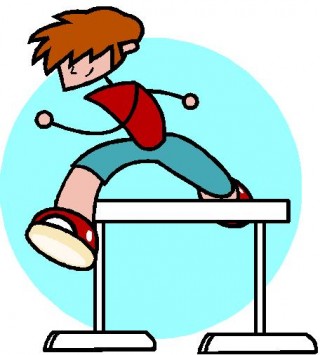Parenting: Achievement
By Harald Breiding-Buss
There are few issues where parents’ opinions are as divided as over encouraging (or discouraging) competition and achievement in their children.
For some, competition is the root of all evil for children, especially when encouraged early in life. Things should be about the joy of taking part and having fun along the way, not about winning or losing.
Competitiveness, they would say, is the source of much grief and destroys friendly relationships between children.
For others, competition and personal achievement are the core to creating a grounded personality. Without achievement and competition, life becomes a meaningless string of ‘fun’ experiences, and older children especially are cast adrift by a hollow quest for the ultimate fun experience.
Schools are equally divided.
Our neighbourhood primary school runs with the motto ‘pride in achievement’, a statement many schools would find too bold. However, many schools not only have their own everyday uniforms, but special uniforms and equipment for sporting events.
One P.E. teacher at the school my children go to told me that he is reluctant to enter students into inter-school athletics at High School level, because the competition between schools is so fierce, and many hire highly professional coaches to make sure their students do well.
On the other hand there is an increasing number of ‘alternative’ schools who quite consciously opt out of a competition model in education in favour of a ‘cooperation’ model. Christchurch, for example, has ‘Tamariki’, ‘Discovery’ and Rudolf Steiner schools, all applying an alternative model of education.
A while ago I saw a bumper sticker proclaiming ‘a kid in sport stays out of court’.
That statement has statistics in its favour: very few youths having to stand before a judge for various misdemeanors are involved in sports clubs, or competitive sport in general. This seems to go for both, boys and girls. But what is behind this concept?
Is it just a matter of keeping them busy?
Competitions are actually great bonding exercises, and not just between the members of a team. Even in individual sports such as tennis many close friendships have been formed out of an initial desire to beat the other person.
Perhaps more importantly they are great family bonding experiences. You simply cannot help feeling proud if your kid has won something, as a member of a team or individually.
Kids will bask in that pride, and it is this moment of closeness and the great feeling that comes with it that will spurn them on to keep doing it. The disappointments, too, bring you closer.
Competition is often a part of family life as well. Video games are something where siblings often compete, or where children compete with their parents. I was genuinely shocked when my older daughter first beat me at some Playstation game, and it has been downhill from there.
Conveying pride in our children’s achievements includes some subtle messages, which quite possibly are responsible for that ‘grounding’ effect that proponents of competitiveness cite in their favour.
Most of all it shows our children that achievements are important to us.
It is important to us to be good at something, and it implies that being good at something makes us feel that we are useful members of society.
It is something that will be acknowledged by others, and others may come to us for advice about something we’re good at.
This is quite an essential part of a functioning community, and it embeds us in it. Even if you’re good at something that is not really of direct benefit to the community—such as sports—it gets acknowledged nevertheless.
And how often have you come home with your child after a sports game to announce to the rest of the family that ‘we won’ or ‘we lost’. It was not the All Blacks that lost vs France in the World Cup—it was us!
These things are obviously more important for older children than for younger ones. For pre-school children, competitiveness more often than not is bad news.
This is because young children are much more defined by their attachment to caregivers, which is an absolutely crucial component of their development.
If they feel they need to earn close moments with their parents through being better than another child, it will kill the emergence of traits such as altruism or empathy.
‘Community’ means nothing for a pre-schooler, whose world revolves around himself and his family.
Nevertheless, even pre-schoolers quickly cotton on to the idea of achievements, and dad especially has a lot to do with it. Dads tend to give praise a little less freely than mums, but often react rather exuberantly for really big achievements.
It seems to go against our grain as men to praise something that we don’t really think is that good for the sole purpose of making someone else feel good. After all, the time will come where that someone will have to be weaned from the idea that absolutely everything they do is ‘great’.





